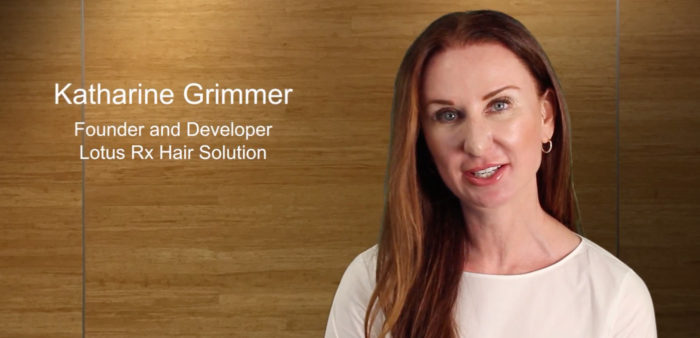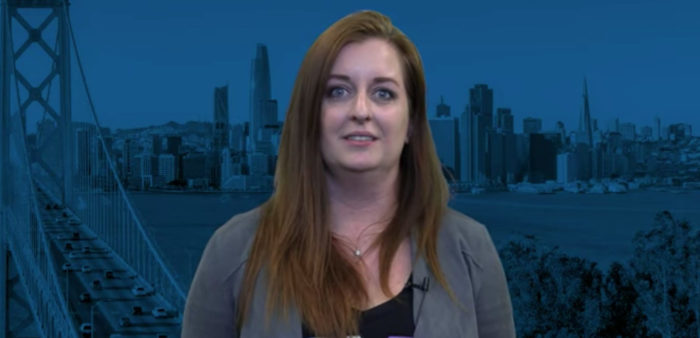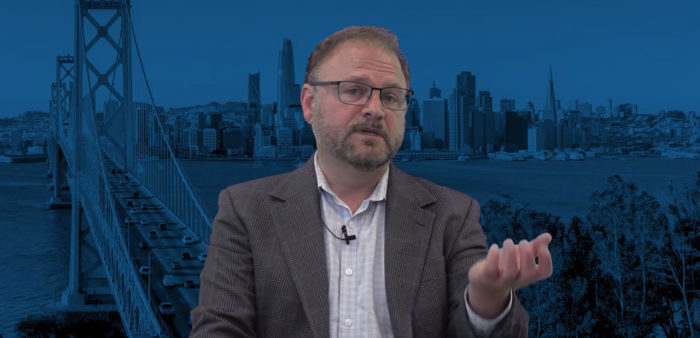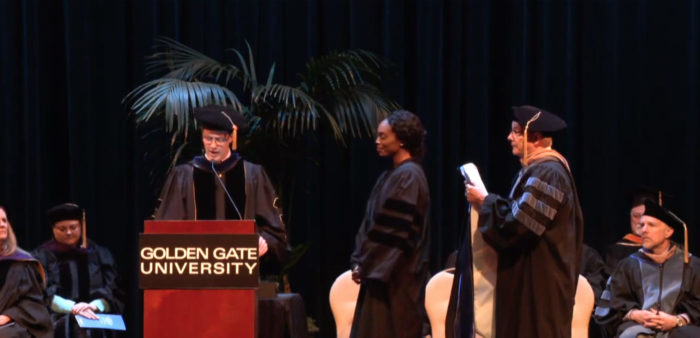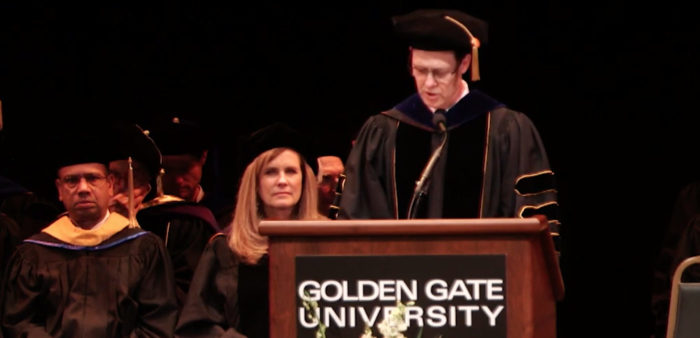
Why Career-Changers Can Make Fantastic Financial Planners: Transferable Skills and Educational Options
This is the second post in a two-part series, Financial Planning Careers, by Lauren Stansell, CFP® (pictured, bottom right, with her colleagues at Yeske Buie).
Financial Planning is a fantastic career that I love. Helping clients fill in the puzzle of their unique life picture is deeply fulfilling and rewarding. Constantly working on and applying my communication skills and technical skills is a big part of my day-to-day picture. For this piece, I’d like to talk about transferable skills and what degrees and certifications are available to start a career in financial planning.
Transferable Skills
Career-changers can make fantastic financial planners due to the existence of their other business and life experience. The life experience allows them to relate to clients as human beings and build relationships on shared or similar experiences.
Those who come from the sales profession have many skills that can translate well. Although sales can be seen as a “bad word” in the Financial Planning profession, we are selling the virtues of our profession every day. We find passion in what we do and we share it with our clients, our prospective clients, our family, and our friends. We tell them what we do, why it matters, why we do it, and more. It’s important to be able to share these thoughts about yourself and your firm. After all, it is one way that business development is done.
Psychology is also important in financial planning, so career-changers coming from a psychology background have an initial set of skills well suited to the financial planning profession. Money is emotional and it can be a deeply psychological topic; reactions to money (from the past, to the headlines, to thoughts about the future) come up often. Having a background in psychology might help someone know the questions to ask to dig deeper in the discovery phase or might allow them to use their empathy and listening skills.
Investment managers and those with a Chartered Financial Analyst® (CFA) designation already have the financial background and know how money and investments work. They have a deep knowledge in one piece of the puzzle discussed earlier. The same applies to accountants! They have a deep knowledge of a large piece of the puzzle: taxes. And, taxes tend to touch most aspects of a financial planning relationship, so these career-changers are starting off with a great value-add for their clients.
In summary, every single career-changer has valuable skills that will transfer well into financial planning. It should be an encouragement to be a career-changer, not a discouragement!
About the Financial Planning Profession
The Financial Planning Profession is relatively young. The first class of CFP (CERTIFIED FINANCIAL PLANNERTM) certificants graduated in 1973. Those pioneers, along with many others, have worked relentlessly to continue to build our profession into what it is today. David Yeske, CFP®, Managing Director of Yeske Buie and director of the Golden Gate University’s Financial Planning programs, is one of those people, along with his business partner and wife, Elissa Buie CFP®, CEO of Yeske Buie.
We, as a profession, aren’t “there” yet — we have work to do! I feel so fortunate to be part of the next generation of planners who will continue this hard work to build and grow our profession.
Many financial planners are close to retirement … We need more financial planners – the demand is there in the job marketplace!
There are, however, some issues facing our profession. First, the average age of financial planners is in the 50s. Specifically, the average age of CFA certificants finally dropped below 50 — to 49.9 — in 2015. Many financial planners are close to retirement and will be retiring in swaths over the coming years. At the same time, there are more CFP certificants over 60 than there are under 30 — and the rate of entry of new planners into the profession is not projected to make up this gap. We need more financial planners – the demand is there in the job marketplace!
In addition to age, diversity is lacking in terms of race and gender. There are many initiatives being worked on to address the lack of diversity and I look forward to getting more involved and seeing the positive results of the efforts.
The primary reason for this lack of new planners (of all ages, races, and genders), I believe, is a lack of public knowledge of our profession. I grew up in a family of financial planners and it even took me until my senior year of college to realize the true value of Virginia Tech’s CFP Board Registered Financial Planning Program.
Most people simply don’t know this profession exists, or they confuse it with the role of stockbrokers or insurance sales agents. While those roles certainly provide a function needed by many people, they do not encompass the entire “puzzle picture” of a Client’s life, like financial planning does.
The world around us is constantly changing and we must continue to stay on top of the best available science and research.
Becoming a CFP® Professional & the Value of a Master’s Degree
I am a CFP® professional and believe it is the ultimate designation for financial planners to attain. Additionally, graduate-level education will make you stand out in the profession, provide deeper learning opportunities, boost your skills, and allow you to provide that much more value to your Clients. As a CFP® professional, I am always acting as a fiduciary for my Clients I am held to the standards all CFP® professionals are held to, I have met the requirements, and I meet the ongoing education requirements.
For those yet to earn the designation, Golden Gate University’s Master of Science in Financial Planning also provides the Education Requirement and qualifies a graduate to sit for the CFP® examination immediately upon graduation. The availability of master’s level programs around the country is on the rise, but we still need more programs like this because taking advantage of the opportunity to constantly learn more, in service of being the best planner you can be, is important!
What education do you need to become a financial planner?
Here are the details of the education requirement, and the three others, to become a CERTIFIED FINANCIAL PLANNER ™:
- EDUCATION: The first step is to acquire the knowledge required to deliver professional, competent, and ethical financial planning services to Clients. This requires candidates to hold a bachelor’s degree and to have completed a CFP Board-approved education program.
- EXAMINATION: The next step is to pass the CFP Certification exam, which is designed to assess a candidate’s ability to apply their financial planning knowledge in an integrated format to financial planning situations.
- Experience: After the examination requirement is complete, candidates must then accumulate 4,000 hours of full-time practice experience under the direct supervision of a CFP®.
- ETHICS: The final step is to complete an ethics certification, which includes an inquiry into the candidate’s background and an agreement to adhere to the CFP Board’s Code of Ethics.
(For more information on becoming a CFP® professional, visit the CFP Board’s website: www.cfp.net.)

Although I have the CFP® designation, I am pursuing a master’s degree because I believe that learning fuels potential. We should never be done learning, and, in this profession, we can’t afford to ever be done learning! The world around us is constantly changing and we must continue to stay on top of the best available science and research. We must stay educated and be the experts for our Clients.
The master’s degree I am pursuing has already taught me a significant amount regarding taxes, and I’ve only completed two classes! As mentioned previously, taxes can encompass a lot of each client’s puzzle; and it is important to me to continue to deepen my knowledge of taxes as I hope to be the go-to tax person at Yeske Buie (currently, Elissa Buie fills that role). While we don’t file taxes for our clients, we do strive to have a deep understanding of their tax situation and a close relationship with their tax preparer so we can ensure all strategies are thought about from all angles.
Additionally, I am very much looking forward to learning more about Business Development for Financial Planners and Behavioral Finance. The capstone course will be a great way to “put it all together.” I’ll spend a trimester with my classmates digging deep into each realm of a financial plan and presenting my final plan at the end of the trimester. While I may do this type of work on a day-to-day basis already, I really look forward to learning from others in the course. It is important to me to keep an open mind and I hope to learn new ideas from others.
Online Classes
One of the things I love about taking classes online thus far is the connection the online professors work to build. It can be hard to be engaged in an online course, and the professors know that. They work hard to encourage participation and engagement from day one. They ask us to share about ourselves, the type of work we do, why we’re in the program, and more, so we can get to know one another virtually. The professors also do a great job of staying connected and promoting this engagement throughout the trimester. They are constantly on the discussion forums providing guidance and helping us get back on track when we are confused on a topic or study section.
In my experience, Golden Gate University is providing the opportunity for people from all locations (online students) and all backgrounds to complete their education and work to join this wonderful profession!
Dr. Dave Yeske, CFP® Director of GGU’s Financial Planning programs and Distinguished Adjunct Professor, is always excited to talk to current and prospective students. If you want to learn more about the program, what it involves, how you can get started, or have ideas you would like to share with him, I would encourage you to reach out to him directly. I am also always happy to chat! You can email me at laurens@yebu.com.
About Lauren Stansell, CFP®
 Lauren Stansell, CFP®, is a Financial Planner with Yeske Buie. She resides and works in San Francisco, and loves the city! Lauren grew up (and spent her first three years with Yeske Buie) in Northern Virginia, just outside of Washington, D.C. Lauren earned an honors B.S. in Economics, summa cum laude, from Virginia Tech in May 2012. She earned her second honors bachelor’s degree in Finance, summa cum laude, from Virginia Tech’s CFP® Certification Education Track, a CFP Board-Registered program in December 2012. Lauren passed the CFP® exam in July 2014 and became a CFP® professional in February 2015. She is currently pursuing her Master’s in Advanced Financial Planning at Golden Gate University. Lauren co-founded the Financial Planning Association (FPA®) Student Chapter at Virginia Tech and was the first president of the organization. She is a graduate of FPA’s Residency Program. Lauren enjoys engaging with the next generation of financial planners; she served as the Co-Director of NexGen for the FPA of the National Capital Area when she lived in Virginia and is now serving as the Director of Marketing Communications for the FPA of San Francisco.
Lauren Stansell, CFP®, is a Financial Planner with Yeske Buie. She resides and works in San Francisco, and loves the city! Lauren grew up (and spent her first three years with Yeske Buie) in Northern Virginia, just outside of Washington, D.C. Lauren earned an honors B.S. in Economics, summa cum laude, from Virginia Tech in May 2012. She earned her second honors bachelor’s degree in Finance, summa cum laude, from Virginia Tech’s CFP® Certification Education Track, a CFP Board-Registered program in December 2012. Lauren passed the CFP® exam in July 2014 and became a CFP® professional in February 2015. She is currently pursuing her Master’s in Advanced Financial Planning at Golden Gate University. Lauren co-founded the Financial Planning Association (FPA®) Student Chapter at Virginia Tech and was the first president of the organization. She is a graduate of FPA’s Residency Program. Lauren enjoys engaging with the next generation of financial planners; she served as the Co-Director of NexGen for the FPA of the National Capital Area when she lived in Virginia and is now serving as the Director of Marketing Communications for the FPA of San Francisco.

